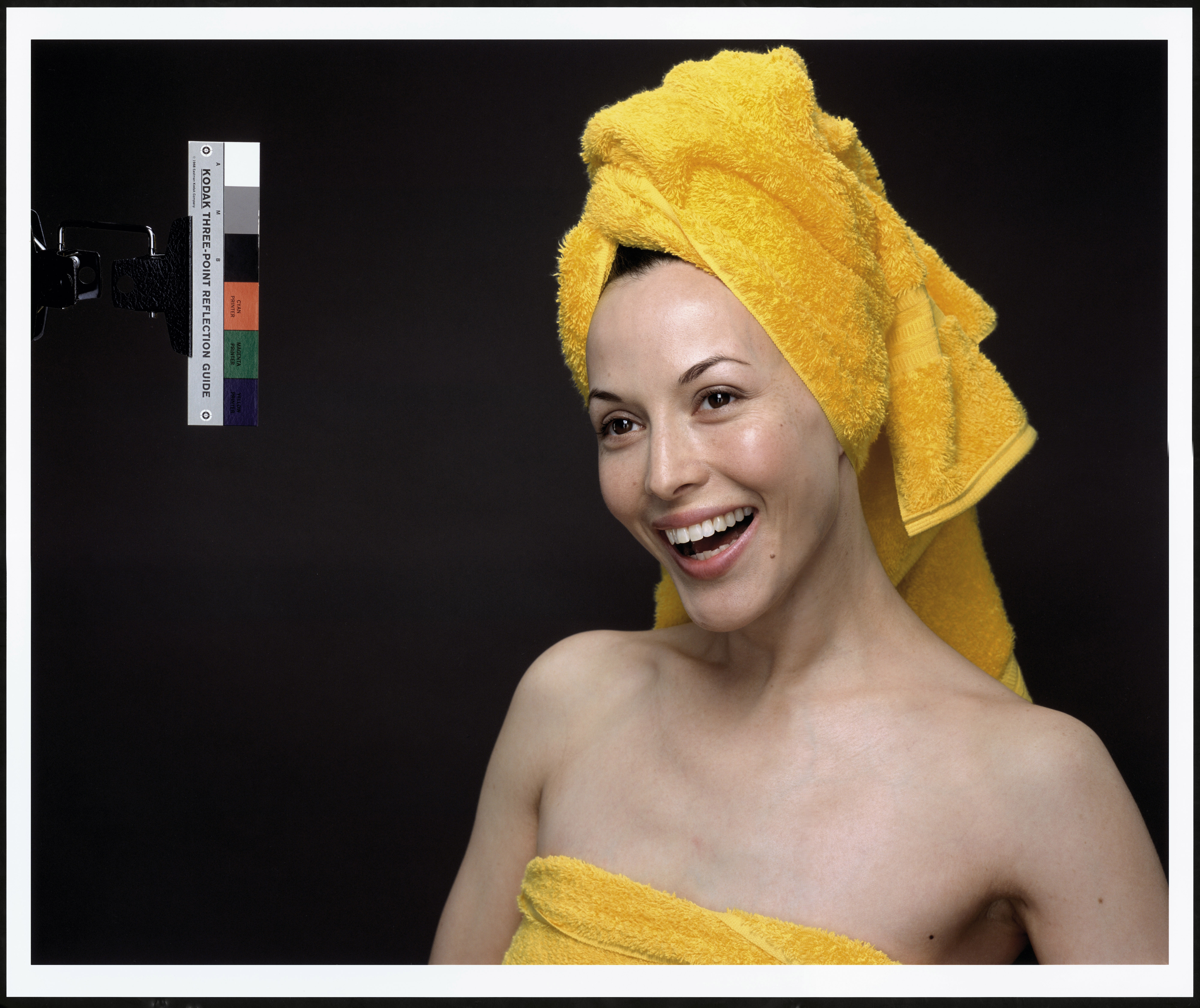Christoper Williams
Kodak Three Point Reflection Guide, 2005
Artist
Christoper Williams
Title
Kodak Three Point Reflection Guide, © 1968 Eastman Kodak Company, 1968. (Miko laughing) Douglas M. Parker Studio, Glendale, California
Year of creation
2005
Technique and dimensions
C-Print, edition: 10, 50.8 x 61 cm
Year of acquisition
2006
Acquisition of the foundation
With his predominantly photographic work, which clearly deals with the history of the medium, the artist Christopher Williams, born in Los Angeles in 1956, sends the viewer on an insoluble but tense search for significance. Through his practice, which emerges from the conceptual art of the 1960s and 1970s, the artist presents such a disparate range of motifs, titles, techniques, styles and themes that, amidst the abundance of signs and references, significance is continually and ironically shifted. In contrast to the work of many conceptual artists who work with the medium of photography, his photographs are never just a frontal examination of the medium in its relationship to other media such as painting, sculpture or film, nor are they simple representations of objects or scenes. The fact that the artist is hesitant to describe himself as a photographer gives an idea of the dimensions of his engagement with photography.
Williams sees himself more as a director than a photographer. Instead of taking and developing his photos himself, he oversees the image production, where both visual precision and image quality are of utmost importance to the concept of the work. Although he occasionally presses the shutter button himself, he more or less concentrates on the selection of motifs and the conceptualization of the images and series.
One only has to look at these three works by Christopher Williams to perceive the inherent contingency of form and content that has characterized Christopher Willams' work since the late 1980s. As can be seen in all three images, the elegant and seemingly flawless shots of camera parts, industrial machinery and people are subtly undermined by the built-in anachronisms, the titles with historical-political references and the self-referential allusions to the production. Many of his photos are influenced by advertising aesthetics and appear superficial at first glance. However, through the almost archaeological uncovering of layers of meaning and contradictory semiologies, the shiny surface dissolves. At this point it becomes clear that story and narrative are central to the production and perception of Christopher Williams' work.
